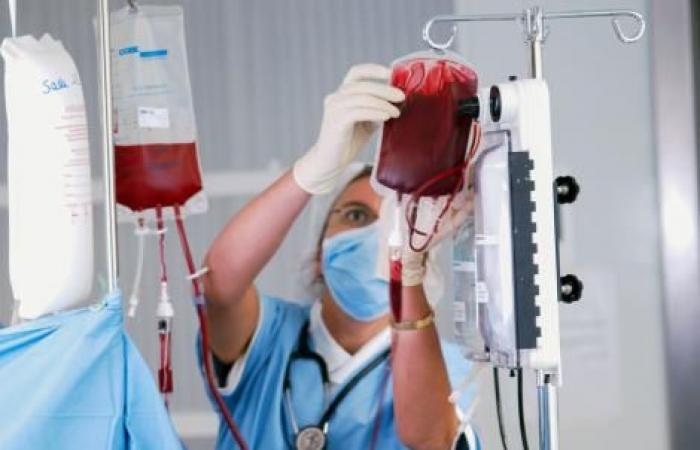Hypovolemic phlebotomy is superior to usual methods for reducing the risk of transfusion during hepatectomy in patients at high risk of bleeding. This is the conclusion of Canadian researchers who carried out a prospective interventional phase 3 study (called Price-2). The results of this randomized trial are published in The Lancet Gastroenterology and Hepatology.
Major liver resection, or hepatectomy, is a surgical operation with a substantial risk of bleeding. Perioperative transfusions are necessary in 12 to 34% of cases. Hypovolemic phlebotomy, consisting of withdrawing a volume of blood before the operation and then returning it to the patient, had been associated with a reduction in the need for transfusion in observational studies.
A volume similar to a blood donation
The 223 patients in the interventional arm had 7 to 10 ml/kg of blood withdrawn, approximately the equivalent of a blood donation (450 ml), without compensation by filling solutions. The volume of blood was retransfused at the end of surgery, regardless of blood loss. In case of blood loss, it was used during the operation, avoiding to a certain extent allotransfusion.
In the control group, in standard care, 36 of 223 patients (16.1%) received a transfusion within 30 days following the operation compared to only 17 of 223 (7.6%) who had hypovolemic phlebotomy, i.e. half as much (adjusted risk ratio aRR = 0.47). The average volume of blood lost was 670 ml with hypovolemic phlebotomy compared to 800 ml with usual care. Over the period, no difference was observed in the frequency of occurrence of complications between the two techniques.
Better operating conditions
On the surgeons’ side, hypovolemia was appreciated because the surgeons’ vision is less obstructed, improving operating conditions. “Professionals find it simple after having done it the first time, and the impact on the surgery is spectacularsaid Dr. Guillaume Martel, co-first author of the study and surgeon at the Ottawa Hospital. It is now the standard in the four hospitals involved in the trial and other hospitals around the world are expected to adopt it following our results.”
Hypovolemic phlebotomy allows 1 in 11 patients to avoid transfusion, saving a limited resource. The procedure is now being tested for liver transplants and could find use in other surgeries with a high risk of blood loss.
Health






